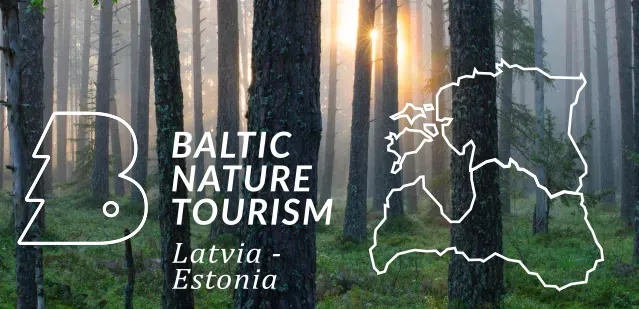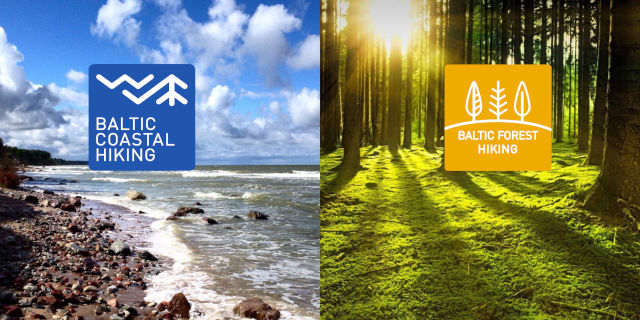Formerly a signaller in the military
Once, in the autumn, a storm started. We were supposed to stay on the lighthouse for a week, and we had food supplies. There were four of us – Sapranyuk, Jansons, Brants and I. We could not get to the land, as there was, what we called, “gruel” in the sea (a mix of snow and water). We stayed on the lighthouse one month and three days. The last 4-5 days we did not had any food at all. At that time, everything was top secret. Our shift was to install a new radio station on the lighthouse, but it was allowed only in the presence of the supreme command. I took the risk, installed the radio station and went on the air. The commanding officer was very happy to hear my voice as there were no radio connections for a longer time, and they had thought we were dead. A ship was sent to the lighthouse from the sea side, but the waves were too high and the ship could not approach. Then they sent a helicopter to bring food supplies. After a couple of days the storm ceased and we got ashore. An order was issued then to keep the food supply for at least 3 months on the lighthouse (army biscuits, canned food, etc.).
I come from the Urals. I served in military two years, in Kronstadt (St. Petersburg). Then I had appendicitis and got to hospital for a surgery. In 1957, I was sent to Latvia and was in service as a radioman in Miķeļbāka, not far from Ventspils. The Krasnoflotsk military unit was located close to this place (between Miķeļbāka and Lūžņa villages). I was in service for four years as a senior radioman and had four subordinates.
We lived in a two-storey building. There were cannons in Krasnoflotsk, lots of guns were stored in underground bunkers. My work station was also below ground. Firing was often heard. We had military training once in a weak. As a radioman, I had to maintain communication with aircrafts coming from the military airfield in Vaiņode.
In military, I practiced sports, played football. We took the first place in our division and were rewarded with three days off. We went to Dundaga by a narrow-gauge train for football matches – some 10 men from each unit, 30 men together. Troubles started as soon as we got to the shop and everybody bought strong drinks. I stayed in Miķeļbāka with my girlfriend Zigrīda. The others went to Dundaga and had a real party there. Unfortunately, the celebration did not last long. A vehicle was sent for the men. I got scold for leaving my group. The case was even brought to the central committee of the communist party. The shops were ordered not to sell alcohol to soldiers. Sometimes the guys managed to get some vodka, but there was always checking on return from a leave. Guys were hiding the bottles to get them later, but often either could not find the hide or somebody else had already found the bottle and taken it.
I often went sea fishing with officers. Once we had a very good catch, everyone saw it, and it was decided to organise a fishing competition. They bought fish-nets, set up teams and went in the sea. A storm started and all the nets were torn. We were lucky to get back alive. Most of the officers were from mainland and did not know the sea.
After military service, I stayed in Kolka village, got married. My wife Zigrīda is Latvian. I met her in Lielirbe, during the military service. Some 10-15 girls from Lielirbe village used to come to the parties we gave on weekends. We played music records or accordion and danced. This was how we met. Zigrīda was still in the high school then.
I lived in Kolka 7 years, from 1957 to 1965. In the beginning, I worked as electrician in the local fish factory, later as a radioman in the Kolka lighthouse. There was a radio station there. The lighthouse was run on huge diesel generators. We often were interviewed by television, radio, press. These records must be still in the TV archives.
There was also a military division in the lighthouse. Our boss was an officer. In the beginning we were 12 men, by 6 in each shift. At the end of the 50-ies, a shift lasted a whole month on the lighthouse. Later it was cut to two weeks, then to one week. They also cut the number of staff, there were 8 men together – by 4 in each shift (the headman, the radioman, the technicians).
Once, in the autumn, a storm started. We were supposed to stay on the lighthouse for a week, and we had food supplies. There were four of us – Sapranyuk, Jansons, Brants and I. We could not get to the land, as there was, what we called, “gruel” in the sea (a mix of snow and water). We stayed on the lighthouse one month and three days. The last 4-5 days we did not had any food at all. At that time, everything was top secret. Our shift was to install a new radio station on the lighthouse, but it was allowed only in the presence of the supreme command. I took the risk, installed the radio station and went on the air. The commanding officer was very happy to hear my voice as there were no radio connections for a longer time, and they had thought we were dead. A ship was sent to the lighthouse from the sea side, but the waves were too high and the ship could not approach. Then they sent a helicopter to bring food supplies. After a couple of days the storm ceased and we got ashore. An order was issued then to keep the food supply for at least 3 months on the lighthouse (army biscuits, canned food, etc.). Leningrad TV made a film based on this story, but I was not in there because at that time I took a leave and went to the Urals, my homeland. Water was in high value on the lighthouse. We stored rainwater for drinking and for technical use. We also melted the ice. Water was brought from the land, but it went bad in 3-4 days.
In winter, when the sea was frozen, we often used to skate to the lighthouse or ride in a horse-driven sleigh. It was a risky venture. When it was time to return, sometimes there were already large crevices in the ice and it was dangerous on skates as well as in sleigh. Especially dangerous it was when the sea wind was blowing. But it always ended well.
We often had inspections. Sometimes, during inspection, a storm would start. Then the superiors could not get back to the land and stayed with us on the lighthouse for 4-5 days. In 1965, I was moved to the Akmensrags lighthouse. There was a border guard military unit subordinated to Liepāja. There were 30 men and three horses. Later they also got a truck. 800m from the border guard unit towards Pāvilosta there was a marine unit of 20 men located. We were 8 men working on the lighthouse – the headman, an engineer, and the others were technicians. We were on duty for 24 hours. Half of the equipment on the lighthouse was for military ships, and another half for cargo ships. I got paid for my work. The wages were not high. I got 120 roubles a month, an engineer got 80 roubles.
I was young and full of energy. We had a lighthouse there, and a large field covered with sand. There were only two buildings, one of them built in 1924, the other in the beginning of the 1950-ies. There was neither heating nor water and power supply. When I came from Kolka, I had taken a TV set with me. We built everything around the lighthouse. We installed water pipes to supply water in the buildings, built a bathing house. The place was, in fact, inaccessible, the roads were very bad, there was a marsh. Mostly we were moving along the coastline. There were few buildings in the surroundings, mostly summer houses. We always had to have passports with us because border guards were checking us. If we wanted to go somewhere outside Akmensrags, we had to report to the border guard.
We had the food supplied once in three months, later the food supplies were more frequent. When trucks were available, it became easier. We had livestock on site – a cow, pigs, sheep, poultry, and we also grew vegetables – cucumbers, cabbage, potatoes. There were problems with sheep, wolves or border guard dogs often killed them.
The regulations were very strict. Civilians were not admitted to the lighthouse, but there were occasions when the border guard men took their friends from Pāvilosta and I allowed them to get to the lighthouse. Border guards were training a group of young border guard in school at Pāvilosta, and this group of schoolchildren often visited us.
I have two daughters and a son who is the youngest. I used to take my daughters to school in Pāvilosta by motorbike on Mondays, and back home on Saturdays. My daughters learned in Latvian school, and it was a boarding-school. Nobody abused the children at school for their father being in the border guard. There were many kids in that school whose parents were military.
At the end of the 1970-ies, they wanted to build a nuclear power station in Akmeņrags. They installed a signpost on the site telling that a nuclear power station would stand there. The local people campaigned against it very actively, and the station was not built because of their protests.
I worked in the lighthouse until my retirement in 2000.
| Tourism objects involved in this story | ||
|---|---|---|
In Akmensrags befindete sich die Küstebatterie Nr.500. Im Jahr 1955. wurde die Batterie demontiert und die Geschütze wurden von den Positionen weggebracht. An diesem Ort befindeten sich vier 130 mm Geschütze, deren Fundamente noch im Wald nördöstlich von dem Leuchtturm zu finden sind. Die Fundamente sind stark mit Moos bewachsen und es ist schwierig sie zu finden oder zu sehen. Für ein nicht-Wissender ist es schwierig sie in der Natur zu finden. |
||








